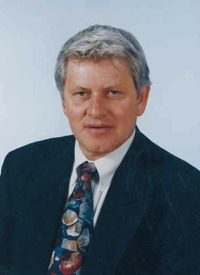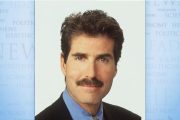
It’s not difficult to understand the fall of Obama — the largest presidential drop in Gallup’s approval ratings in half a century. Just start with Obama’s overly-cocky notion that he’s exceptional and America isn’t.
Asked by a Financial Times reporter last April if he believed in American exceptionalism, Obama replied, Harvard-style: “I believe in American exceptionalism, just as I suspect that the Brits believe in British exceptionalism and the Greeks believe in Greek exceptionalism.”
So we’ve all been kidding ourselves all these years, all these generations when people from all over the world flocked to America’s shores for something special.
In Obama’s book, there’s nothing objectively special or exceptional about America. If we didn’t exist, the Greeks could have done the job of stopping the march of Nazism and communism. Or perhaps the Brits or Kenyans could have picked up the ball.
Or maybe Obama thinks the United States was trigger happy and that Hitler, Stalin, and Mao would have turned off their bad sides if only our leaders had flashed more Colgate smiles, bowed more deeply and expressed more shame about our nation’s past slip-ups.
Obama’s always talking about education and the need for a new and better model for learning. Someone should ask him if believes in Jewish exceptionalism in regards to education, believes in Jews as a prototype to replicate (Jews make up 2/10s of 1 percent of the world’s population and 31 percent of the medicine laureates and 27 percent of the Nobel physics laureates).
I suspect that Obama would reply with something like this, something pro-leveling, an idea that mirrors his aforementioned thought on the lack of American exceptionalism: “With learning, I believe in Puerto Rican exceptionalism, just as I believe in Palestinian extraordinariness. It’s not easy to make Puerto Rican rice and pigeon stew.”
For improvements in education, it’s a good bet that Obama would ignore what’s worked in producing exceptional numbers of laureates in medicine and just propose some feel-good resource redistribution so that various victim groups that are underrepresented in education would end up with a free ride when it comes to tuition, books and grades.
Still, even in this time of forced leveling and redistribution, there remains one type of exceptionalism and superiority that’s fine with some and that’s the elevation of Obama as incomparably exceptional.
Michelle Obama pointed to this specialness of her husband in a February 2008 speech at UCLA. “Barack will never allow you to go back to your lives as usual, uninvolved, uninformed,” she declared. Barack “will require you to work. He is going to demand that you shed your cynicism,” that you “come out of your isolation, that you move out of your comfort zones.”
I thought the government was supposed to protect our lives, liberty and property. Where’s it said that politicians are charged with erasing our cynicism, especially when they’re the creators of much of it?
And what’s wrong with being secluded and contented? Why are our comfort zones any of Barack’s business? Remember when he said that we shouldn’t expect to “drive our SUVs and eat as much as we want and keep our homes on 72 degrees at all times” and still be treated seriously by the world’s globalists and international planners?
And remember Obama’s sky-high rhetoric on the evening of June 3, 2008, when he wrapped up his party’s nomination. Future generations, he said, would look back on that night and say “this was the moment when the rise of the oceans began to slow and our planet began to heal.” It’s was like the turtles were coming out of the water and clapping in the moonlight.
The picture? A flawed America, a magical candidate, a paradigm sure to self-destruct.
Ralph R. Reiland is an associate professor of economics at Robert Morris University in Pittsburgh.



